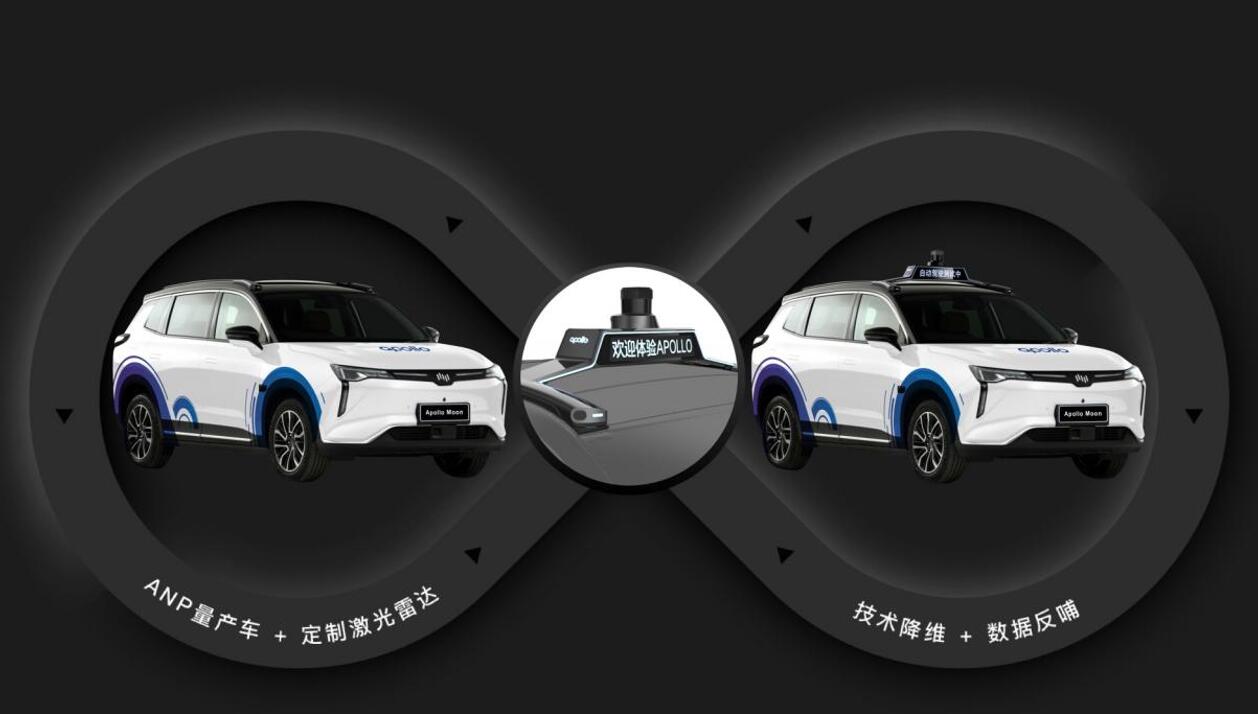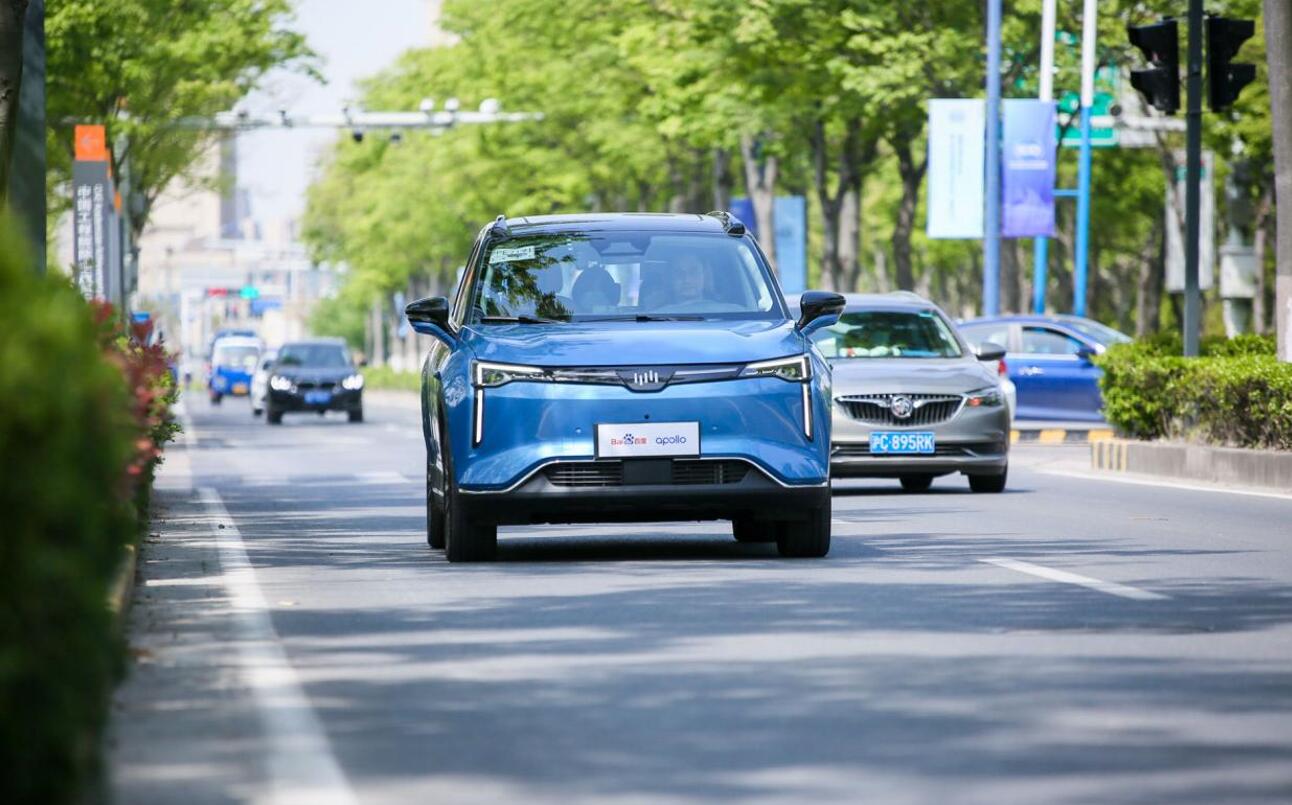They are both based on the WM Motor W6 to accelerate the adoption of Baidu's autonomous driving technology.
Apollo, Baidu's autonomous driving division, today announced the release of two new vehicles in partnership with WM Motor, both based on the latter's W6 SUV, to accelerate the adoption of Baidu's autonomous driving technology.
One is a production model of Apollo Moon, a next-generation unmanned vehicle equipped with LiDAR, and the other is a production model equipped with Baidu's ANP (Apollo Navigation Pilot) and AVP (Apollo Valet Parking) systems.
Both models adopt the "ANP-Robotaxi" architecture, with the W6 with ANP and AVP being the first production model to be equipped with Baidu's assisted driving system with L2+ autonomous driving capability, according to Baidu.
The model has 12 cameras, 5 millimeter-wave radars and 12 ultrasonic radars, enabling assisted driving capabilities such as intelligent avoidance, autonomous lane changing, on and off ramps, and access to service areas.
The Apollo Moon version of the W6, on the other hand, adds 1 custom LiDAR and corresponding driverless redundancy to the ANP+AVP version, allowing for fully driverless capability, according to Baidu.
(Photo source: Baidu)
This also makes WM Motor the second brand to build self-driving cars for ride-hailing with Baidu, after BAIC's electric car brand Arcfox.
Apollo joined forces with Arcfox in June to release the Apollo Moon Robotaxi, which it said is 10 times more capable than its predecessor and has a 99.99 percent success rate in delivering passengers on complex urban roads.
Built on WM Motor W6, the new Apollo Moon Robotaxi features 46 safety and security technologies and 59 travel services designed with full sensor and computing unit redundancy, according to Baidu.
Even if one system fails, it ensures that the vehicle still carries out driving commands and delivers passengers to a safe location, the company said.
Baidu said the Robotaxi can achieve more than five years of operating cycle and can be put into large-scale stable operation.
In the future, Baidu Apollo will continue to strengthen the research and development of autonomous driving technology and cooperate with more cooperative car companies to promote the large-scale commercialization of autonomous driving technology, the company said.
Baidu began its involvement in autonomous driving technology eight years ago and is one of the first companies to enter this field in China.
In April 2021, Apollo L4 autonomous driving road tests exceeded 10 million kilometers, making it the first Chinese company to reach that threshold.
On May 2, Apollo driverless Robotaxi officially opened for regular commercial operation, and the public can experience the world's first fully driverless cab service.
This makes Baidu the first Chinese company to open up the operation of driverless Robotaxi, meaning that the commercialization of driverless has entered a new phase.
On May 10, Baidu announced that Wei Dong, former CEO of Shouqi Limousine & Chauffeur, joined the company as Vice President of the Intelligent Driving Business Group and Chief Safety Operations Officer of Baidu's Intelligent Driving Business Group to accelerate the commercial operation of Apollo shared driverless vehicles.
Become A CnEVPost Member
Become a member of CnEVPost for an ad-free reading experience and support us in producing more quality content.
Already a member? Sign in here.



